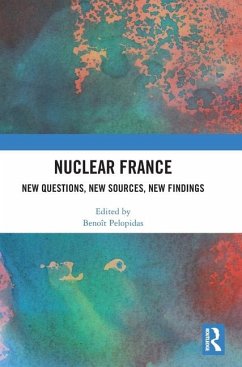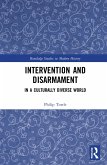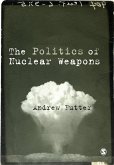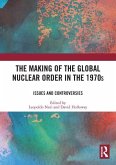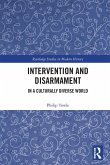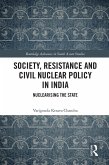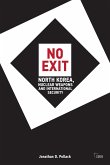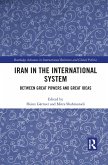This book offers the first non-official history of French nuclear policies which goes beyond the divide between nuclear weapons and nuclear energy policies. It addresses the sizing of France's nuclear forces, technological assistance to countries with nuclear weapons programs, uranium prospection, nuclear testing, its health effects and protests against it, as well as plans to prevent and manage accidents in nuclear power plants. It is based on new questions and new sources from France and abroad.
The chapters in this volume show how independent and interdisciplinary scholarship free from conflicts of interests can uniquely advance our understanding of nuclear history and politics. This is the case because it does not treat the categories and judgments of official discourse as neutral starting points of the analysis. This volume is based on untapped primary sources from France, the UK, the US, India, South Africa and Iran, on a new assessment of the health consequencesof French nuclear testing in Polynesia thanks to a modern atmospheric particle transport code coupled with historical weather data, open-source information about radioactive debris ("mushroom") clouds, as well as data on the composition and particle sizes of the fallout; and on new survey data about French knowledge of and attitudes towards nuclear weapons and nuclear energy. They show notably that the first generation of French nuclear forces lacked technical credibility despite reliance on outside help. Several French officials knew this, as did France's allies and adversaries. Moreover, French strategic collaborations associated to nuclear programs extended to India and South Africa; nuclear safety regulations changed fundamentally after the Cold War, and approximately 110,000 people, i.e. 90% of the French Polynesian population in the 1970s, could have received doses that would qualify them for compensation according to French law.
The volume will be of interest to scholars and students of history, politics, international relations, military history, war studies, conflict and global governance. Most of the chapters in this book were originally published as a special issue in Cold War History. A few chapters were first published in the Nonproliferation Review, Diplomacy & Statecraft and Science & Global Security.
The chapters in this volume show how independent and interdisciplinary scholarship free from conflicts of interests can uniquely advance our understanding of nuclear history and politics. This is the case because it does not treat the categories and judgments of official discourse as neutral starting points of the analysis. This volume is based on untapped primary sources from France, the UK, the US, India, South Africa and Iran, on a new assessment of the health consequencesof French nuclear testing in Polynesia thanks to a modern atmospheric particle transport code coupled with historical weather data, open-source information about radioactive debris ("mushroom") clouds, as well as data on the composition and particle sizes of the fallout; and on new survey data about French knowledge of and attitudes towards nuclear weapons and nuclear energy. They show notably that the first generation of French nuclear forces lacked technical credibility despite reliance on outside help. Several French officials knew this, as did France's allies and adversaries. Moreover, French strategic collaborations associated to nuclear programs extended to India and South Africa; nuclear safety regulations changed fundamentally after the Cold War, and approximately 110,000 people, i.e. 90% of the French Polynesian population in the 1970s, could have received doses that would qualify them for compensation according to French law.
The volume will be of interest to scholars and students of history, politics, international relations, military history, war studies, conflict and global governance. Most of the chapters in this book were originally published as a special issue in Cold War History. A few chapters were first published in the Nonproliferation Review, Diplomacy & Statecraft and Science & Global Security.
"During the Cold War, France's nuclear behavior persistently baffled and enervated other Western national security policymakers. Yet in the English-language scholarship on Cold War nuclear history, France has received less attention than any other traditional great power. This excellent collection of essays by up-and-coming scholars goes a long way toward piercing the fog of myth and misperception that continues to obscure the complex truth about France's nuclear actions and their consequences."
Jacques E. C. Hymans, University of Southern California, USA
Jacques E. C. Hymans, University of Southern California, USA

